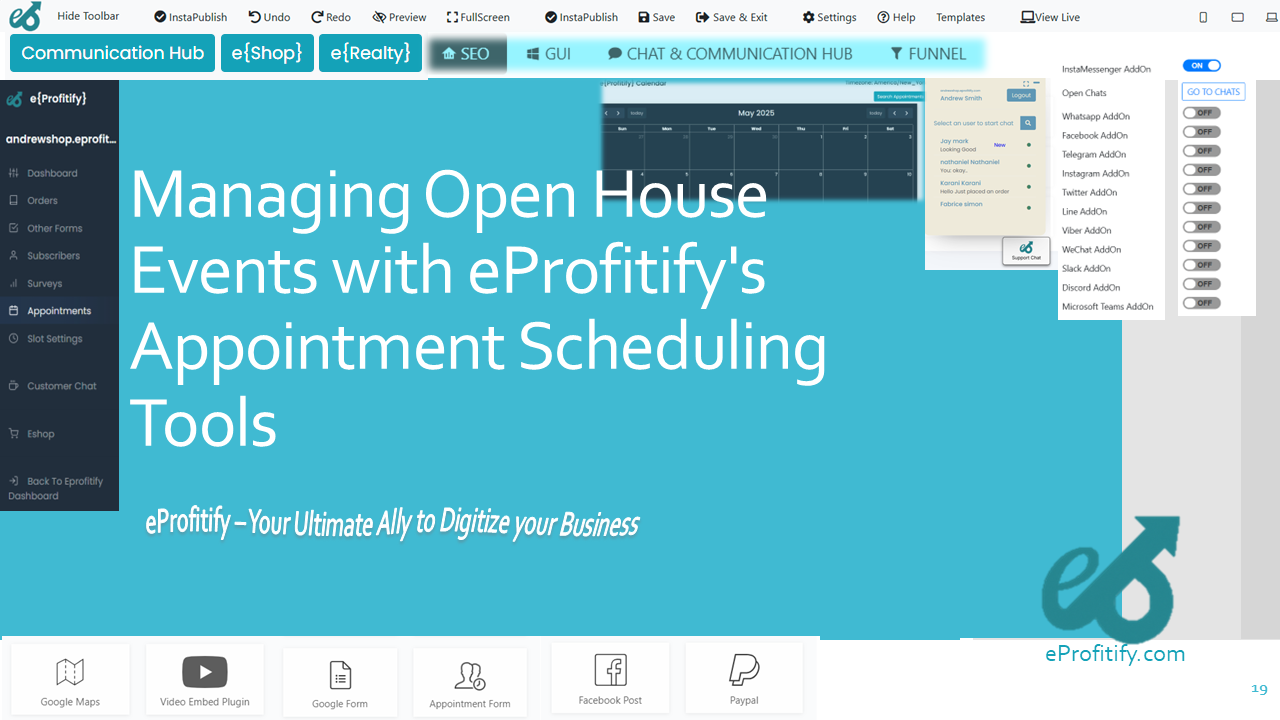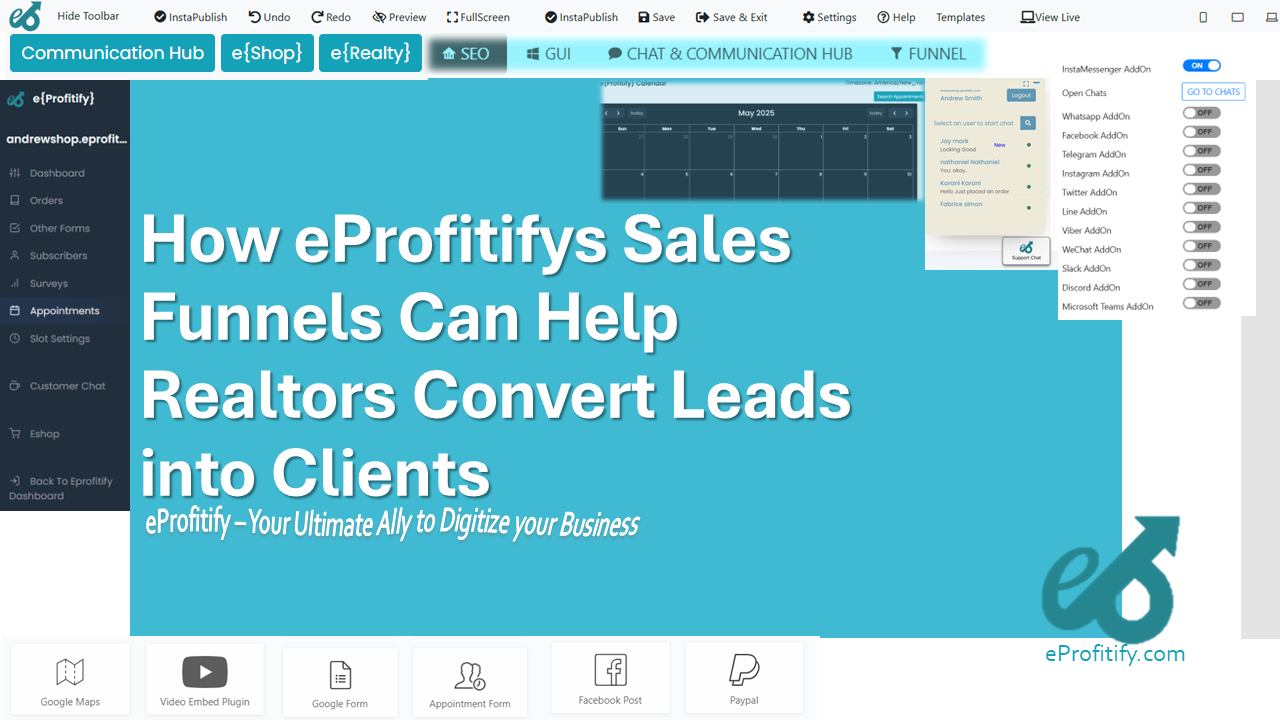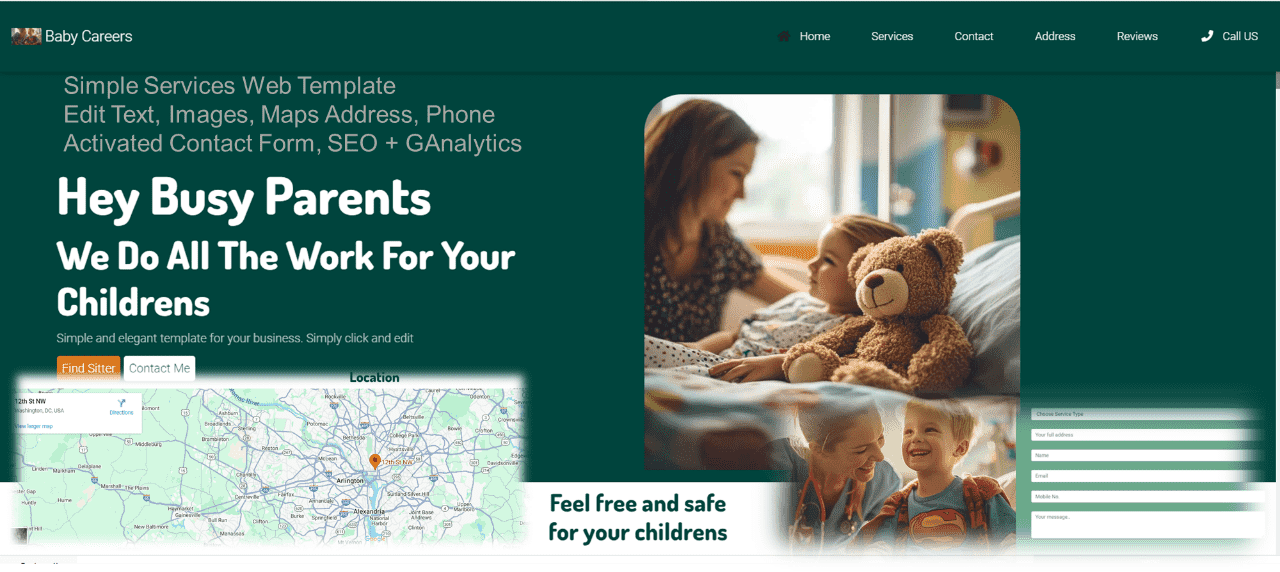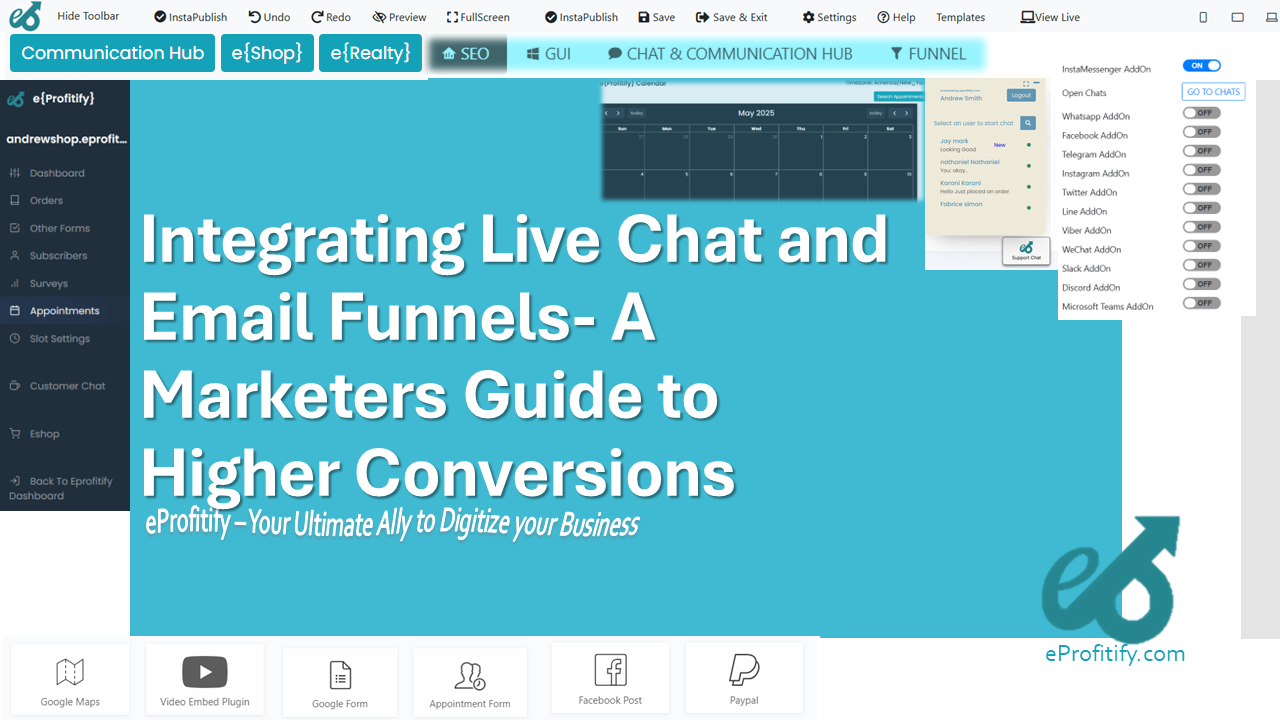The Role of Technology in Modern Real Estate Practices
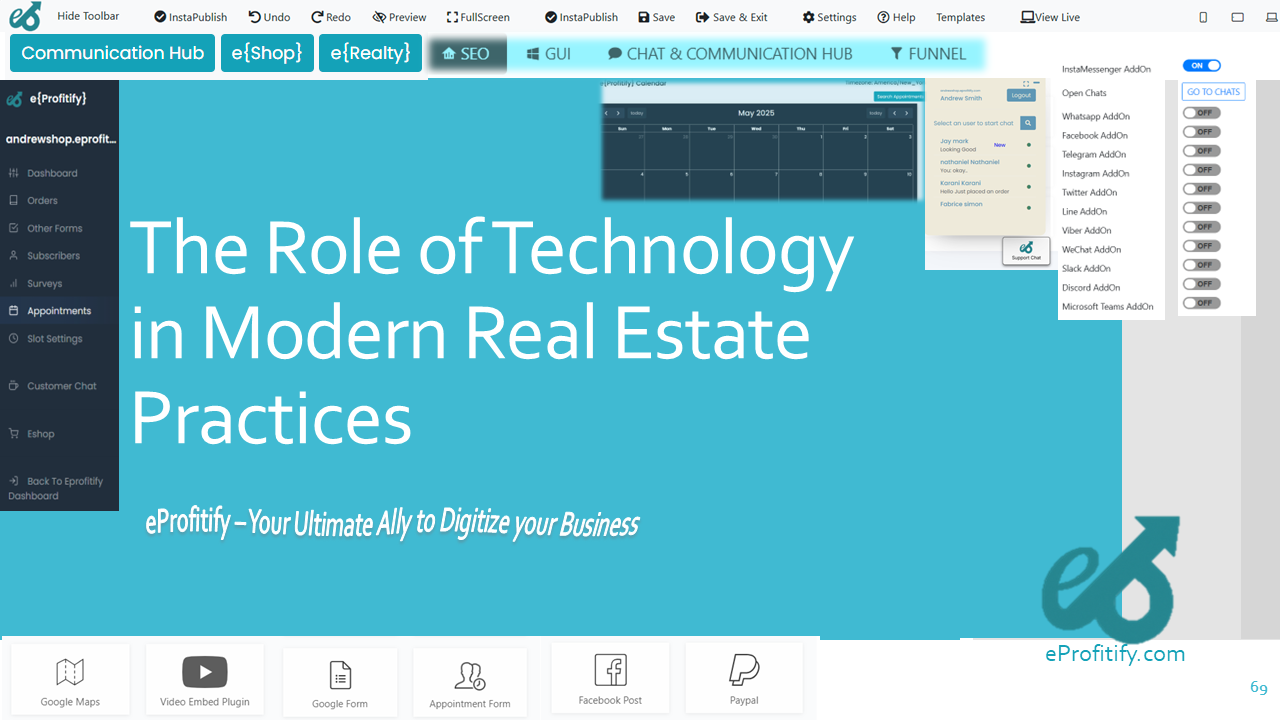
The Role of Technology in Modern Real Estate Practices
The real estate industry, traditionally perceived as brick-and-mortar and relationship-driven, has undergone a seismic shift in recent years. Technology now sits at the core of buying, selling, and property management, reshaping how stakeholders interact, analyze markets, and close deals. From artificial intelligence (AI) to virtual reality (VR), innovative tools are enhancing efficiency, transparency, and accessibility. This transformation is further propelled by platforms like Eprofitify, a leading website publishing and management tool that integrates advanced features such as instant messaging, appointment management, e-commerce, and CRM systems to empower real estate professionals.
1. Data-Driven Decision Making and AI
Modern real estate thrives on data. AI-powered analytics tools enable agents and investors to predict market trends, evaluate property values, and identify investment opportunities with unprecedented accuracy. According to a 2023 report by the National Association of Realtors (NAR), 90% of buyers start their property search online, relying on platforms that aggregate real-time data on pricing, neighborhood demographics, and market fluctuations. Machine learning algorithms analyze historical data to forecast housing price trends, reducing risks for buyers and sellers. For instance, Zillow’s “Zestimate” tool, which estimates home values using AI, has a median error rate of just 2.4% for on-market homes, showcasing the precision of modern analytics.
2. Virtual Tours and Augmented Reality
The pandemic accelerated the adoption of immersive technologies like VR and augmented reality (AR). Virtual tours allow buyers to explore properties remotely, saving time and expanding market reach. A 2022 study by Matterport revealed that listings featuring 3D tours receive 40% more engagement than those without. AR apps, such as MagicPlan, let users visualize renovations or furniture placement in real-time, bridging the gap between imagination and reality. These tools not only enhance buyer experience but also reduce the number of physical showings—a win for both agents and clients.
3. Online Platforms and Digital Marketplaces
Gone are the days of relying solely on yard signs and newspaper ads. Over 98% of millennials—now the largest group of homebuyers—use online platforms to search for properties, per NAR. Websites like Zillow, Redfin, and Realtor.com dominate the market, but specialized tools like Eprofitify are gaining traction by offering end-to-end solutions. Eprofitify enables agents to create professional websites effortlessly, complete with integrated e-commerce functionalities for secure transactions. Its platform also supports automated listing syndication, ensuring properties reach wider audiences across multiple channels.
4. CRM and Automation
Customer relationship management (CRM) systems have become indispensable for nurturing leads and streamlining communication. Modern CRMs automate follow-ups, track client interactions, and segment audiences for targeted campaigns. According to Salesforce, 67% of real estate agencies using CRMs report improved client retention. Eprofitify’s CRM tool stands out by combining instant messaging and appointment management features, allowing agents to schedule viewings, send reminders, and respond to inquiries in real time. This integration minimizes no-shows and ensures seamless coordination between stakeholders.
5. E-Commerce Integration
The rise of proptech has digitized transactions, enabling secure online payments, digital contracts, and even tokenized property sales. Blockchain technology, for instance, ensures transparent and fraud-resistant record-keeping. Eprofitify enhances this shift with its e-commerce capabilities, allowing agents to sell services, process payments, and manage subscriptions directly through their websites. This is particularly valuable for agencies offering ancillary services like home staging or mortgage consultations.
6. Mobile Technology and Apps
Mobile apps have revolutionized on-the-go access to real estate services. Apps like Offerpad and Opendoor enable instant cash offers for homes, while platforms like Eprofitify provide mobile-optimized dashboards for agent-client interactions. Mobile technology also facilitates real-time updates: 73% of buyers found their homes using mobile apps, according to NAR.
Eprofitify: A Comprehensive Solution for Modern Real Estate
Amidst this tech-driven evolution, Eprofitify emerges as a game-changer. Designed specifically for real estate professionals, its platform combines essential tools into one ecosystem:
- Instant Messaging: Direct, encrypted communication keeps clients engaged.
- Appointment Management: Automated scheduling reduces administrative workload.
- E-Commerce Integration: Secure payment gateways and service listings streamline revenue generation.
- CRM: Track leads, automate follow-ups, and analyze client behavior.
- Website Builder: Create SEO-optimized sites with IDX integration for live listings.
With a 92% user satisfaction rate, Eprofitify stands out for its user-friendly interface and adaptability to agencies of all sizes. The platform’s analytics dashboard also offers actionable insights, helping agents refine marketing strategies and maximize ROI.
The Future of Real Estate Tech
Emerging trends like AI chatbots, smart home integrations, and blockchain-based transactions will continue to redefine the sector. However, the key to success lies in adopting holistic platforms like Eprofitify that unify disparate tools into a cohesive workflow. As the global proptech market grows—projected to reach $86.5 billion by 2032 (Allied Market Research)—agencies leveraging these innovations will dominate the competitive landscape.
Conclusion
Technology has democratized access to real estate markets, empowering buyers, sellers, and agents with tools that foster efficiency and transparency. Platforms like Eprofitify exemplify this shift, offering tailored solutions that address modern challenges. By embracing these advancements, real estate professionals can stay ahead in an increasingly digital world—where success hinges on adaptivity, speed, and client-centric innovation.



